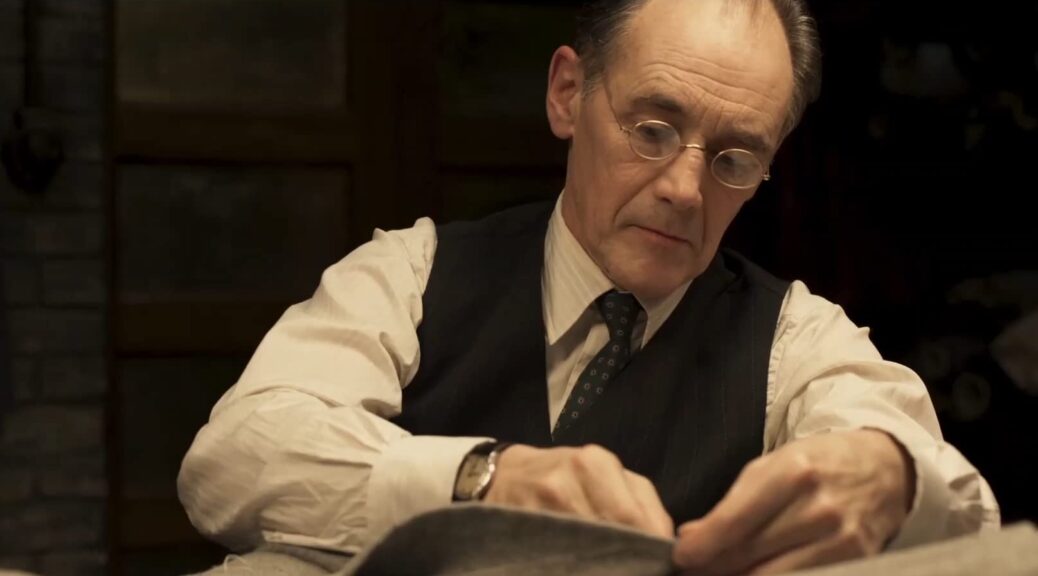One Life
by George Wolf
Back in 2015, Sir Nicholas Winton passed away at the age of…106.
Healthy diet? Lots of cardio? Maybe, but One Life lets us know Winton could have subsisted on little more than whiskey, smokes, and the unlimited good karma from his days as a young man on a humanitarian mission that put faith in “ordinary people.”
In the years before World War II, “Nicky” (Johnny Flynn) was a London stockbroker. But as Hitler and the Nazis marched across Europe, Nicky committed himself to saving as many Jewish children as he could, spearheading a committee to place the children with foster families in the U.K.
Years later, the older Nicky (Anthony Hopkins) and his wife Grete (Lenas Olin) begin cleaning out their house, which brings him face to face with an old briefcase. Inside the satchel are the records from Nicky’s refugee network, and he begins to wonder if the story might be of interest to the local press.
It is.
Veteran television director James Hawes and the writing team of Lucinda Coxon and Nick Drake adapt the book by Winton’s daughter Barbara as a standard take on an extraordinary story. Have plenty of tissues handy, which is a testament to the sheer power and timely urgency of Nicky’s life-saving work.
The flashback scenes are satisfactory, but lack the cinematic style and structure to find a unique voice amid the holocaust dramas we’ve seen in just the last several years.
It is the later narrative thread – with, unsurprisingly, a truly touching turn by Hopkins – that allows One Life to leave its mark. Overdue accolades only seem to increase Nicky’s despair over the lives he couldn’t save, and Hopkins is able to craft the haunted man with a nuance that underscores all the good that can come from turning care into action.
The film’s final act puts the effect of Sir Nicholas’s work in very specific, very human and very public terms. And even if you remember hearing about the goosebump-inducing way the “British Schindler” finally got his flowers, One Life makes sure those goosebumps will come again.







